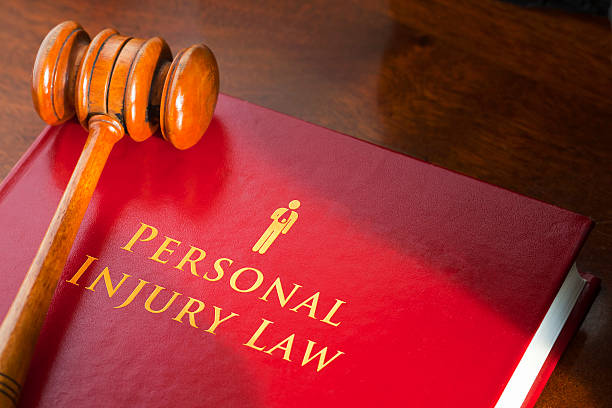How to Choose a Personal Injury Lawyer: 5 Essential Criteria
Selecting the right personal injury lawyer can make or break your case. With medical bills, lost wages, and emotional stress at stake, you need a professional who is experienced, trustworthy, and aligned with your needs. But how do you find the best fit among countless options? This guide outlines five critical criteria to evaluate when choosing a personal injury lawyer, helping you make an informed decision without the fear of picking the wrong advocate. By focusing on these factors, you can feel confident in pursuing the compensation you deserve.
Criterion 1: Specialized Experience in Personal Injury Law
The first step in choosing a personal injury lawyer is ensuring they specialize in personal injury law. Unlike general practice attorneys, specialists have deep knowledge of cases like car accidents, workplace injuries, or medical malpractice. Their experience equips them to handle complex legal issues, such as proving negligence or negotiating with insurers.
Look for a lawyer with a proven track record of success in cases similar to yours. For example, if you were injured in a car crash, a lawyer who has secured substantial settlements for accident victims is ideal. Ask about their history: How many personal injury cases have they handled? What were the outcomes? A seasoned lawyer will have examples of past successes, such as recovering significant compensation for clients, which demonstrates their ability to navigate your case effectively.
Criterion 2: Local Knowledge of State Laws and Courts
Personal injury laws vary significantly by state, so choosing a lawyer familiar with your local legal system is crucial. For instance, California has a two-year statute of limitations for most injury claims, while other states may allow three years or impose different rules, like comparative fault systems that affect compensation if you’re partially at blame.
A local lawyer understands these nuances and has experience with nearby courts, judges, and insurance adjusters. This familiarity can streamline your case and improve outcomes. If you’re in a city like Los Angeles or New York, prioritize a lawyer based in your area who knows the regional legal landscape. Local expertise also means they’re accessible for meetings and can respond quickly to your needs.
Criterion 3: Transparent Fee Structure
Cost is a major concern when hiring a lawyer, but most personal injury lawyers work on a contingency fee basis, meaning you pay nothing upfront. Instead, they take a percentage—typically 30% to 40%—of your settlement or award, but only if you win. This structure aligns their interests with yours, as they’re motivated to maximize your compensation.
Ensure the lawyer is upfront about their fees and any additional costs, such as court filing fees or expert witness expenses. A transparent fee agreement should clearly outline what you’ll owe and when. Beware of lawyers who are vague about costs or pressure you into signing without explaining terms. Transparency builds trust and helps you avoid unexpected financial burdens.
Criterion 4: Strong Client Reviews and Reputation
A lawyer’s reputation can reveal a lot about their reliability and effectiveness. Check online reviews on platforms like Google Reviews, Yelp, or legal directories such as AVVO to see what past clients say. Positive reviews often highlight a lawyer’s responsiveness, empathy, and success in securing fair compensation. Conversely, consistent complaints about poor communication or unprofessionalism are red flags.
Look for patterns in feedback. For example, multiple clients praising a lawyer’s ability to explain complex legal terms might indicate strong communication skills. Also, verify the lawyer has no disciplinary actions or ethical violations by checking with your state’s bar association. A solid reputation reflects a lawyer’s commitment to client satisfaction and ethical practice.
Criterion 5: Effective Communication Skills
Clear and timely communication is essential for a successful lawyer-client relationship. A good personal injury lawyer responds promptly to your questions, whether by phone, email, or in-person meetings, and keeps you updated on your case’s progress. They should also explain legal concepts in plain language, ensuring you understand your options without feeling overwhelmed.
During your initial consultation, assess their communication style. Do they listen attentively to your concerns? Are they willing to answer questions without rushing you? A lawyer who communicates effectively builds trust and reduces stress, especially during a challenging time. If they offer multilingual support, such as Spanish for diverse communities, that’s a bonus for accessibility.
Make an Informed Choice for Your Case
Choosing a personal injury lawyer is a critical step toward securing the compensation you need after an injury. By prioritizing specialized experience, local knowledge, transparent fees, strong reviews, and effective communication, you can find a professional who meets your needs. Take time to compare options, ask questions, and trust your instincts. With the right lawyer, you’ll have a dedicated advocate to guide you through the legal process, giving you confidence in pursuing justice and recovery.
